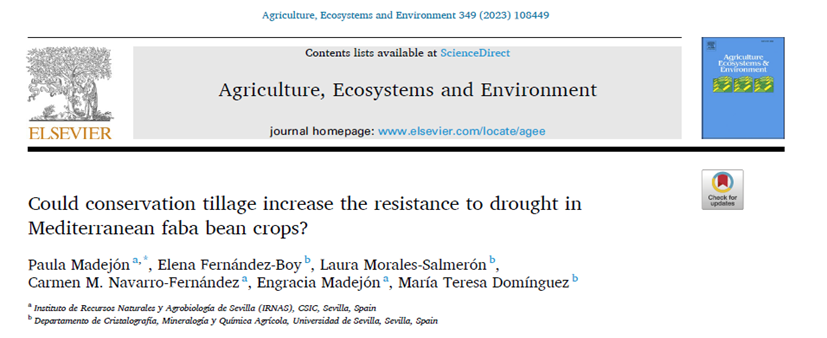The effect of drought on soil water content, broad beans crop and in the root colonization by arbuscular mycorrhizal fungi (AMF) and Rhizobium nodulation during a growth cycle under different tillage systems has been evaluated: no tillage (NT), reduced tillage (RT) (conservation tillage) and traditional tillage (TT) (mouldboard).
The results indicate that the reduction in rainfall had a negative impact on the germination of broad beans in the TT. In the case of RT, the low yields were influenced by a high presence of weeds enhanced by drought. The negative effect of drought was especially evident on photosynthesis rates and stomatal conductance in all types of tillage, while leaf water potential was only affected in TT. The ecophysiological indicators were positively related to some variables of arbuscular mycorrhizal colonization and Rhizobium nodulation in roots.
The main conclusions show that despite drought had no effect on water storage in the soil, the greater potential for AMF infectivity in soils under conservation tillage could be beneficial for plants to better face to water stress, particularly in conservation systems. Due to these effects, the adoption of conservation tillage practices (RT and NT) could be beneficial for plant physiology in a context of reduced rainfall, if proper weed management is ensured.
https://doi.org/10.1016/j.agee.2023.108449
